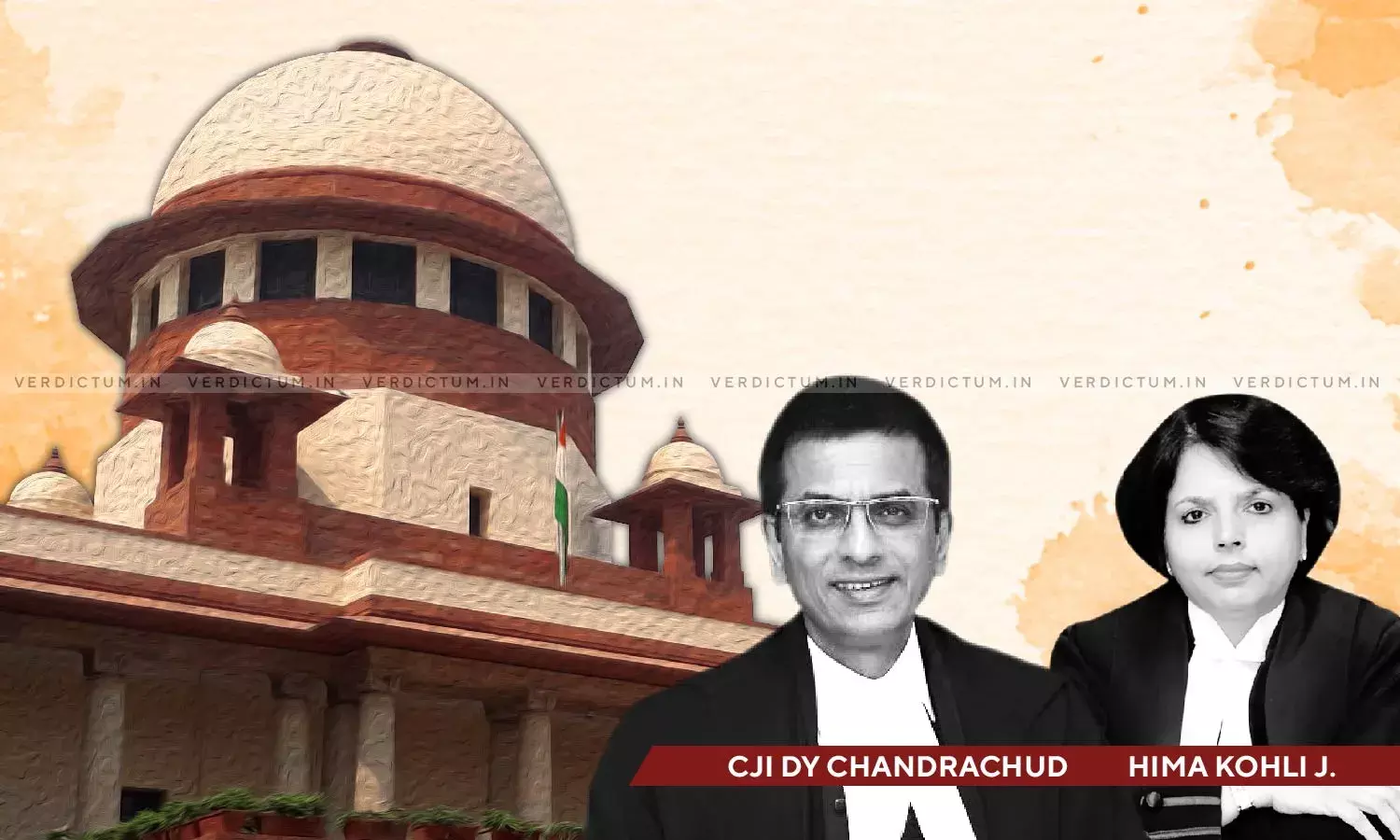Reasonable Opportunity Of Being Heard Should Be Given Before A Borrower's Account Is Classified As Fraud- SC

The Supreme Court has held that before a borrower’s account is classified as fraud, a reasonable opportunity of being heard and representation should be provided by the Banks.
The Court also held that an accused cannot claim to have a right of hearing before the registration of an FIR and that the principles of natural justice are not applicable at the stage of reporting a criminal offence.
The Bench of CJI DY Chandrachud and Justice Hima Kohli held that “...we hold that the rule of audi alteram partem ought to be read in Clauses 8.9.4 and 8.9.5 of the Master Directions on Fraud. Consistent with the principles of natural justice, the lender banks should provide an opportunity to a borrower by furnishing a copy of the audit reports and allow the borrower a reasonable opportunity to submit a representation before classifying the account as fraud. A reasoned order has to be issued on the objections addressed by the borrower.”
Senior Advocate Gopal Jain appeared for the appellant and Advocate Sanjay Kapur appeared for the respondent.
In this case, the pleas were moved before the Telangana High Court to challenge the directions issued under the Reserve Bank of India (Frauds Classification and Reporting by Commercial Banks and Select FIs) Directions 2016 on the ground that no opportunity of being heard was envisaged to borrowers before their accounts were classified as fraudulent.
The High Court held that the principles of natural justice must be read into the provisions of the Master Directions on Frauds. The decision was assailed by the RBI and lender banks through appeals before the Apex Court.
The issue dealt with was whether the borrowers had the right to be heard before their accounts were classified as fraudulent in terms of the RBI’s Master Directions of Frauds.
The Apex Court noted that when a borrower’s account was classified and declared as fraud, it virtually led to a credit freeze for the borrower, who was then debarred from raising finance from financial markets and capital markets.
“The bar from raising finances could be fatal for the borrower leading to its ‘civil death’ in addition to the infraction of their rights under Article 19(1)(g) of the Constitution. Since debarring disentitles a person or entity from exercising their rights and/or privileges, it is elementary that the principles of natural justice should be made applicable and the person against whom an action of debarment is sought should be given an opportunity of being heard.” the Apex Court said.
It was argued that the classification of accounts as fraud would lead to registration of FIR, which would result in a criminal consequence and hence, the borrower should have a right to be heard.
However, the Apex Court observed that “At the outset, we clarify that principles of natural justice are not applicable at the stage of reporting a criminal offence, which is a consistent position of law adopted by this Court. In Union of India v. W N Chadha, a two-judge bench of this Court held that that providing an opportunity of hearing to the accused in every criminal case before taking any action against them would “frustrate the proceedings, obstruct the taking of prompt action as law demands, defeat the ends of justice and make the provisions of law relating to the investigation lifeless, absurd, and self-defeating. Again, a two-judge bench of this Court in Anju Chaudhary v. State of UP23 has reiterated that the Code of Criminal Procedure, 1973 does not provide for right of hearing before the registration of an FIR.”
Accordingly, the appeals were disposed of.
Cause Title- State Bank of India & Ors v. Rajesh Agarwal & Ors

